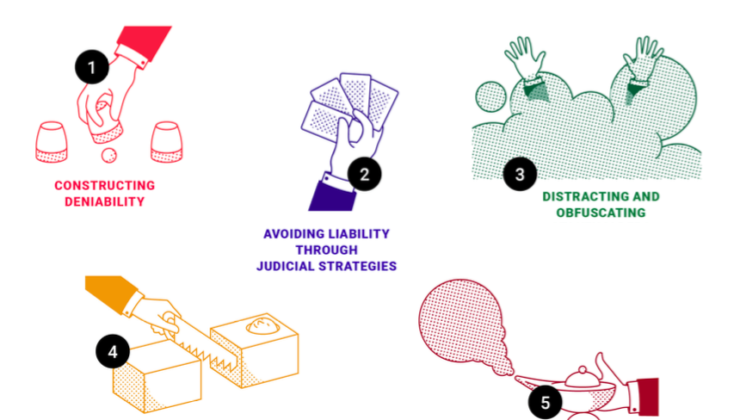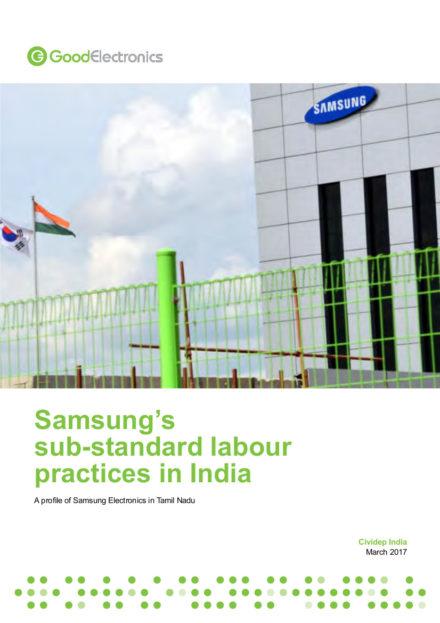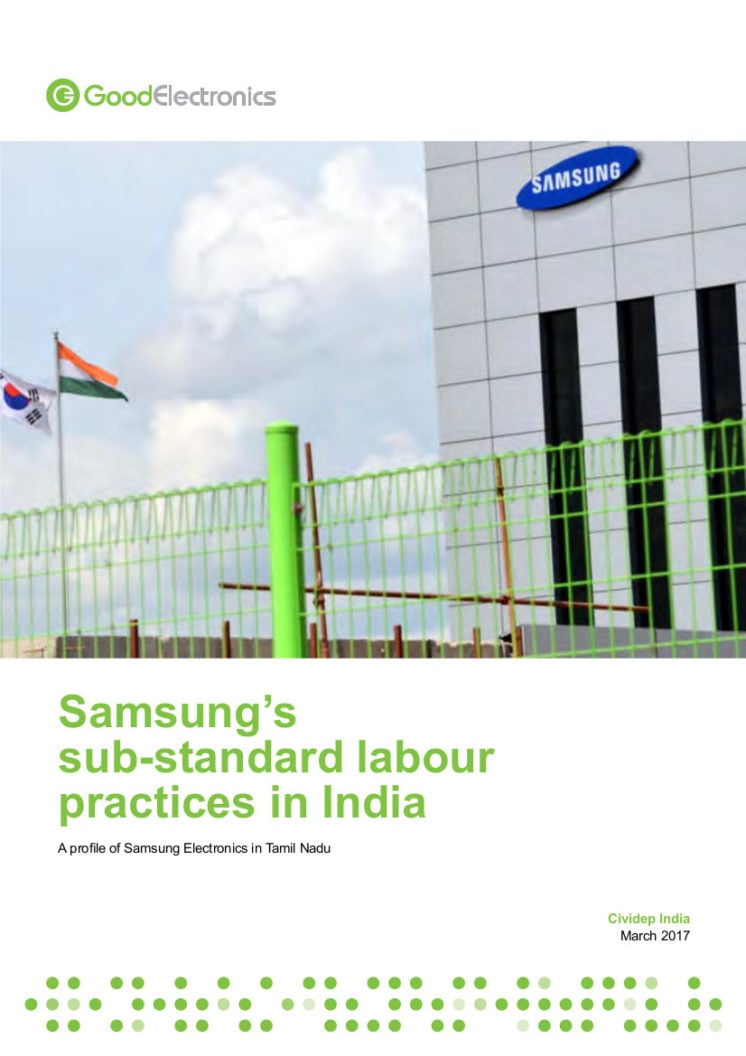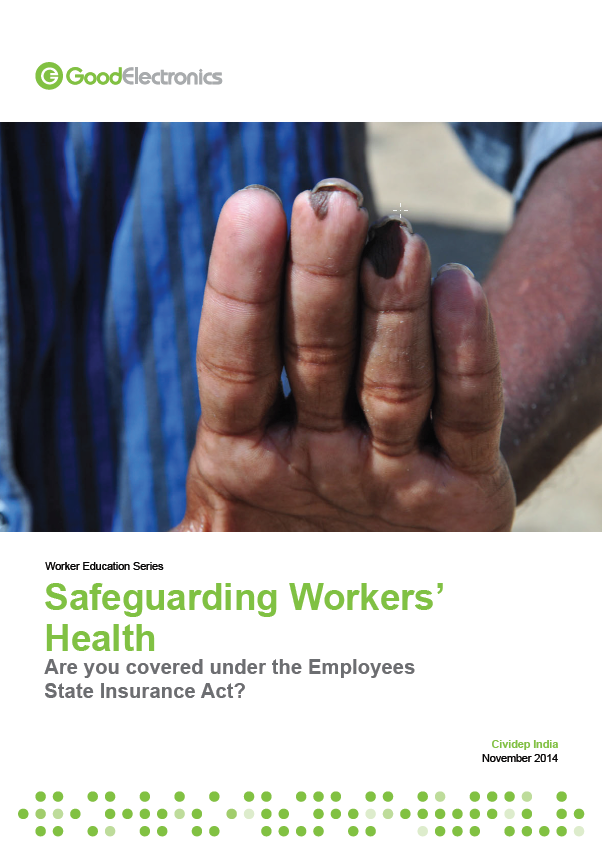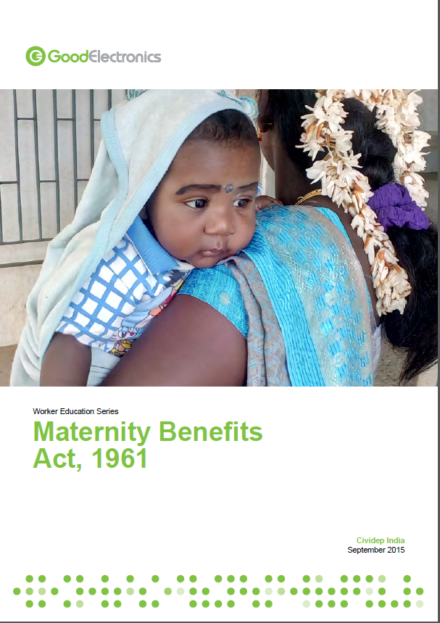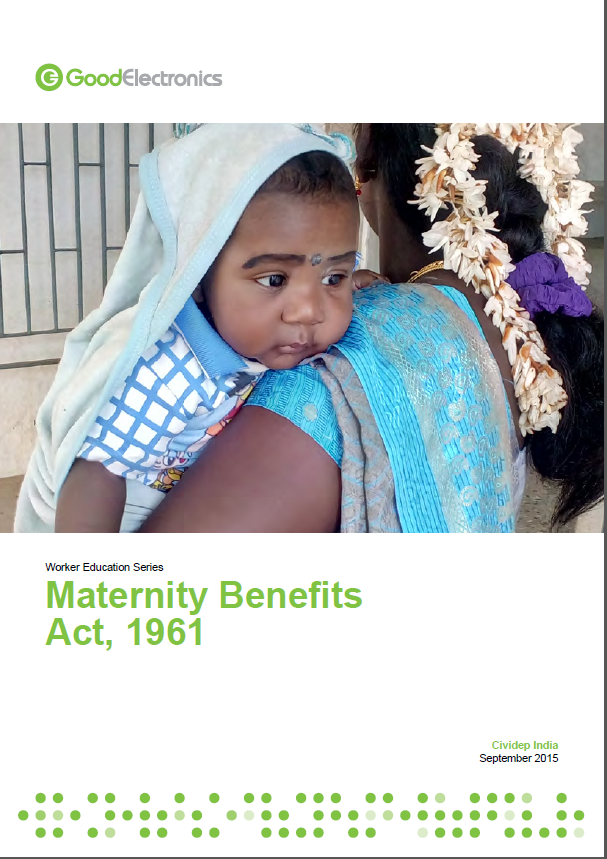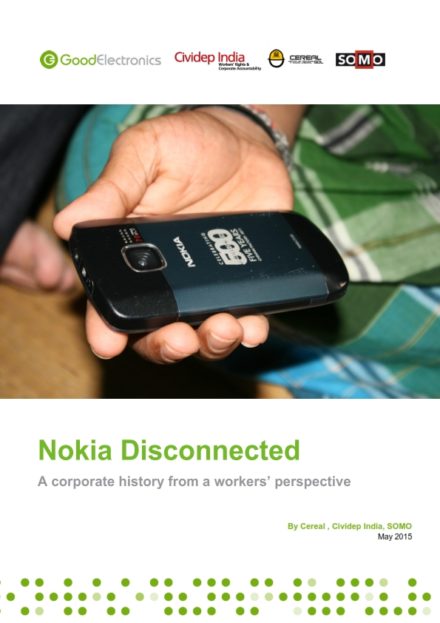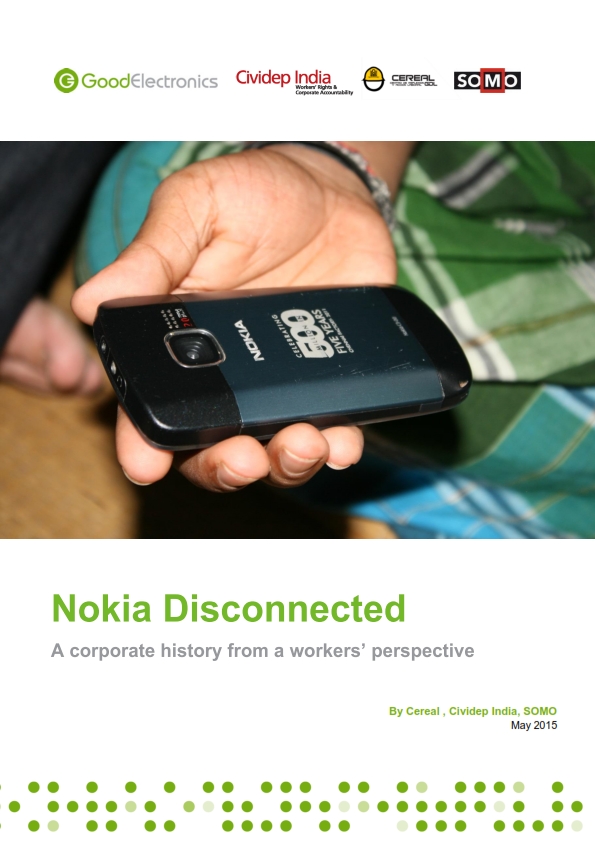CIVIDEP India attempts to empower workers and communities and to ensure that businesses comply with human and labour rights and environmental standards. With this objective, CIVIDEP educate workers, study effects of corporate conduct, dialogue with various stakeholders and advocate for policy change.
related content
Study on the impact of the Covid-19 pandemic on the electronics sector in India
Supported by GoodElectronics, Cividep studied the impact of the Covid-19 pandemic on the electronics sector in India. The main objective of this research was to evaluate the immediate as well as the broader and medium-term…
Five strategies corporations use to avoid responsibility for human rights abuses
Reposted from SOMO Hiding behind complex supply chains, undermining unions, disseminating distorted information – these are just a few of the ways that corporations try to avoid responsibility for human rights abuses and environmental damage…
Working Conditions and Social Dialogue in the Indian Electronics Industry round table.
Cividep, in collaboration with Good Electronics and Electronics Watch, held a national round-table on Working Conditions and Social Dialogue in the Indian Electronics Industry, on 9 March in Chennai. The aim of the round-table was to focus…
Samsung’s sub-standard labour practices in India
Samsung in India: 20 years on, but low labour standards
Cividep India together with GoodElectronics has published a profile of Samsung’s operations in India. Cividep describes how Samsung India has completed 20 years of operating in India with special offers called “Celebrating 20 years” for…
Safeguarding workers’ health
Handbook on Labour Laws II
Nokia Disconnected
Report: Workshop on worker’s safety in e-waste recycling units
E-waste is a critical waste issue globally. The concerns in India are heightened due to rudimentary and environmentally unsafe recycling practices in the informal sector, which leads to massive pollution and toxic releases. Workers involved in dismantling…


